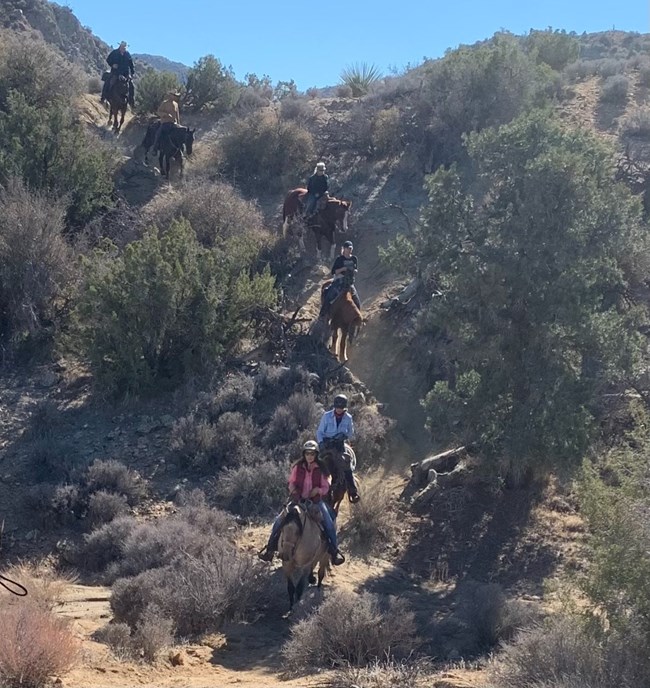
NPS / Brad Sutton
Horseback riding has long been a popular way to access and experience Joshua Tree National Park. Two hundred fifty-three miles of equestrian trails and trail corridors traverse open lands, canyon bottoms, and dry washes throughout the park. Desert ecosystems are fragile and require special care. Desert soils, when disturbed, take years to heal, so it is important for riders to travel on established trails. The lack of available drinking water is both a challenge and a limitation for riders and horses. Care should be taken when planning your trip since stock animals may not use natural or man-made water sources within the park.
Designated Trails
The Backcountry and Wilderness Management Plan provides for 253 miles of equestrian trails and trail corridors that traverse open lands, canyon bottoms, and dry washes. Many riding trails are already open, clearly marked, and ready to be enjoyed.
The two most popular areas of the park for equestrian users are Black Rock Canyon and the areas near the West Entrance.


Camping and Backcountry UseRyan and Black Rock campgrounds have designated areas for horses and stock animals. Reservations are not required for day use. 
NPS / Tammy Freeman Travel RestrictionsPark staff are in the process of stabilizing and rehabilitating the trails and installing improved signage. New trails are being constructed. In areas where trail construction has been completed, riders must stay on established trails. In areas where trail construction has not yet occurred, riders should follow the existing footprints of trails defined in the BWMP and avoid trails that have not been designated. Desert soils and vegetation are easily eroded. Most park trails are designed for single file travel. Travel abreast only in trail corridors. Be aware of riders traveling in the opposite direction and locate areas where you can pass safely. Riders are not permitted to tether or rest their animals within 200 feet of any natural or manmade water source. Access and Staging Horse trailers may be parked at the following locations:
Near the West Entrance, mounted riders may come into the park at:
|
Last updated: December 5, 2022
